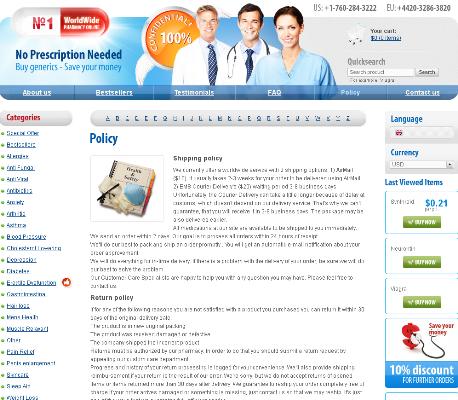**keflex and Alcohol: What Are the Risks?**
What Is Keflex and Its Common Uses?
Keflex, scientifically known as cephalexin, is a versatile antibiotic belonging to the cephalosporin class. It is often prescribed to fight bacterial infections by impeding the ability of bacteria to form cell walls, thus halting their growth. Frequent uses for Keflex include treating respiratory tract infections, urinary tract infections, skin infections, and ear infections. Imagine waking up with an achy throat, only to find out it’s strep – Keflex might be teh go-to solution your doctor prescribes.
| Condition | Keflex Use |
|---|---|
| Respiratory Tract Infections | Treats bacterial infections causing sore throats and bronchitis |
| Urinary Tract Infections (UTIs) | Effective in eradicating bacteria causing UTIs |
| Skin Infections | Combats cellulitis and other skin infections |
| Ear Infections | Prescribed for otitis media and other ear infections |
Doctors often prefer Keflex due to its broad spectrum of action and low incidence of serious side effects. It is generally well-tolerated, which makes it an excellent choice for various patient demographics. However, like all antibiotics, it is crucial to follow the prescribed dosage and duration to minuscule any risk of antibiotic resistance or recurrence of the infection.
How Alcohol Interacts with Antibiotics

Combining alcohol with antibiotics, including Keflex, can lead to a range of reactions and side effects. Alcohol can reduce the effectiveness of the antibiotic by interfering with its absorption and processing in the body. This can delay your recovery and allow the infection to persist or worsen. Moreover, both alcohol and antibiotics like Keflex are metabolized by the liver, which can lead to increased stress on this vital organ.
Alcohol can also enhance the common side effects of antibiotics, such as stomach upset, dizziness, and drowsiness. This interaction can leave individuals feeling more fatigued or nauseous than they would if they abstained from alcohol during their course of treatment. Such a combination can make daily tasks and overall progress in treatment more challenging.
Potential Side Effects of Mixing Keflex and Alcohol
Mixing alcohol with Keflex can complicate your body's natural balance and may intensify side effects. What might seem like a harmless glass of wine could actually increase the burdens on your liver, wich is already working hard to process the antibiotic. Beyond this, the combined use could lead to symptoms like nausea, dizziness, and stomach pain. Such side effects might not just be uncomfortable but could also make it harder to stay on your prescribed treatment plan, thus compromising your recovery. Drink cautiously to avoid aggravating these potential risks.
Medical Recommendations and Cautions to Consider

When it comes to taking Keflex, medical professionals frequently advise caution if you plan to consume alcohol. The combination can exacerbate the side effects, leading to increased dizziness, drowsiness, and gastrointestinal discomfort. Thus, it is advisable to limit or avoid alcohol while on this medication to reduce any potential complications. Furthermore, the effectiveness of Keflex in treating bacterial infections is critical for your health, and alcohol might interfere with your body's ability to combat these infections.
Healthcare providers often stress the importance of adhering strictly to prescribed dosages and timing. It's essential to complete the full course of Keflex, even if you start to feel better before it's finished. This is to ensure that the infection is completely eradicated. In summary, your best bet is to stay on the safe side until the entire course of antibiotics is acomplished.
Real-life Stories: Risky Encounters with Keflex and Alcohol
Many have found themselves in risky situations when combining Keflex with alcohol, underscoring the need for caution. One such case involved Sarah, who had been prescribed Keflex for a severe urinary tract infection. She attended a friend's birthday party, ignoring her doctor's advice to avoid alcohol. The night took a dramatic turn when she began to feel dizzy and nauseous, eventually fainting. This terrifying experience was a wake-up call for her and underscored the importance of medical guidelines.
| Person | Situation | Outcome |
|---|---|---|
| John | Mixed Keflex with Alcohol at a Company Event | Severe gastrointestinal issues and prolonged recovery |
| Emily | Celebratory Drinks While on Keflex | Exacerbated side effects, including headache and fatigue |
Another story is John’s, who attended a company event while on Keflex and ended up with severe gastrointestinal issues. He later regretted not listening to his physician's recomend to avoid alcohol, as his recovery was significantly prolonged. These real-life examples highlight the unpredictable hazards that can occur with this combination.
Tips for Safe Use of Keflex When Drinking
For those considering consuming alcohol while taking Keflex, being mindful of timing can make a notable difference. Ensure to allow several hours between a dose of Keflex and any alcoholic beverages. This separation helps minimize potential gastrointestinal discomfort and reduces the risk of dizziness and drowsiness. It's crucial to stay well-hydrated and monitor your body's reaction to the combination, as reactions can vary.
Experts advise against heavy drinking while on this antibiotic. Moderation is key, and if you notice any adverse reactions, it is wise to stop consuming alcohol immediately. Consulting with your healthcare provider is always a good step, as they can provide personalized recommendations based on your health history.

